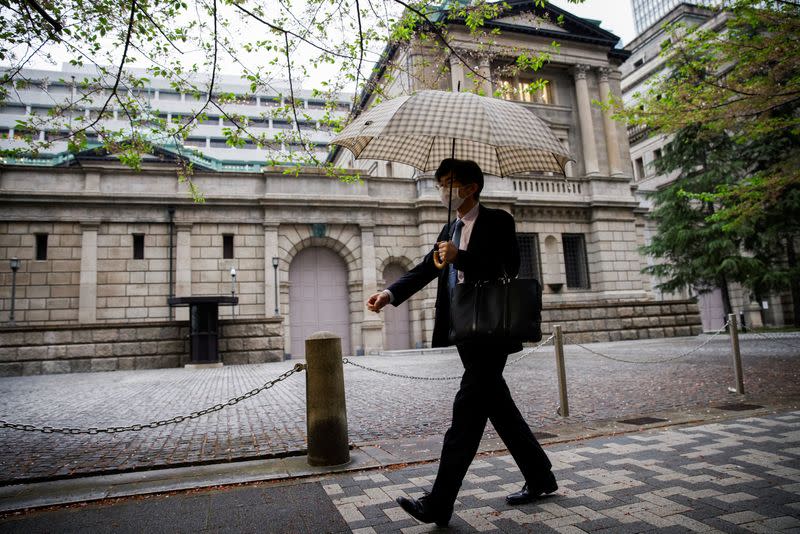BOJ policymaker rules out early end to negative rates

By Leika Kihara and Takahiko Wada
TOKYO/SHIMONOSEKI, Japan (Reuters) -Bank of Japan policymaker Hajime Takata on Wednesday ruled out an early exit from negative interest rates, while also saying that he saw signs the public's deflationary mindset is beginning to change.
Inflation has exceeded the central bank's 2% target for more than a year, prompting financial market players to speculate that the BOJ will soon dismantle the radical stimulus programme adopted under previous Governor Haruhiko Kuroda.
Takata, a former private economist, said there were signs of change in corporate price and wage-setting behaviour that were pushing up goods and service prices, pointing to broadening inflationary pressures in the world's third-largest economy.
"I believe Japan's economy is finally seeing early signs of achieving the BOJ's 2% inflation target," Takata said in a speech, suggesting that conditions for phasing out the bank's massive stimulus are slowly falling into place.
"We need to patiently maintain the current massive monetary stimulus. At the same time, we need to respond nimbly against uncertainties as we're seeing early signs of a positive cycle emerge" between wages and inflation, he said.
At a news conference later on Wednesday, Takata said it would take a year to determine whether recent wage rises will be sustained, bolstering the view that the BOJ will not rush into ending monetary stimulus.
"There's some distance" before the BOJ can ditch negative interest rates, he said, adding that such a consideration should be made only when the central bank saw the need to address sharp and unexpected rises in inflation.
Under a policy called yield curve control (YCC), the BOJ guides short-term rates at -0.1% and caps the 10-year government bond yield around zero to reflate growth and sustainably achieve the 2% inflation target.
The central bank tweaked YCC in July to allow the 10-year yield to rise more, reflecting increasing inflation, a move investors saw as a step toward ending ultra-low interest rates.
Many analysts expect the BOJ to remove the 10-year yield cap before raising short-term rates, though they are divided on how soon this could happen.
Takata's comments echo those of BOJ Deputy Governor Shinichi Uchida, who said last month there was still a long way to go before conditions needed to end negative rates fall into place.
But board member Naoki Tamura last week signalled there might be a chance negative rates could end early next year - suggesting there is no consensus within the BOJ on how soon it should dial back stimulus.
Japan's core inflation hit 3.1% in July, exceeding the target for the 16th straight month. Firms have also promised wage hikes of a size unseen in three decades, bolstering the case for a retreat from decades of ultra-loose monetary policy.
BOJ officials have said the central bank must keep interest rates ultra-low until robust domestic demand and sustained wage growth replace rising import costs as key drivers of inflation.
Takata held the news conference after delivering a speech to business leaders in the western Japan city of Shimonoseki, Yamaguchi prefecture.
(Reporting by Leika Kihara in Tokyo and Takahiko Wada in Shimonoseki; Additional reporting by Tetsushi Kajimoto; Editing by Tom Hogue, Lincoln Feast, John Stonestreet and Catherine Evans)

 Yahoo Finance
Yahoo Finance 